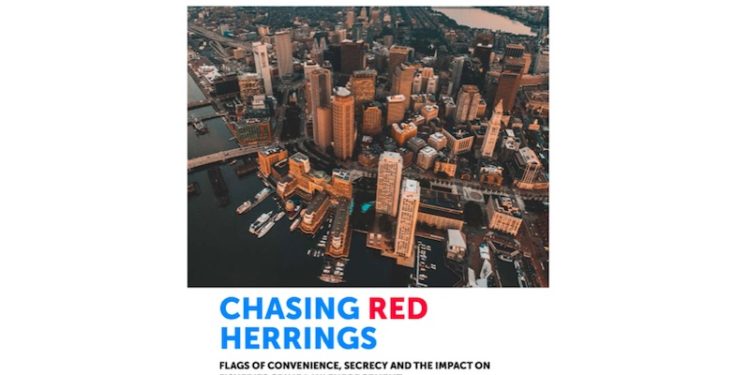PescaDOLUS, the network specialising in studying and exposing transnational crime in the fisheries sector, has released a detailed report supported by the Nordic Council of Ministers and the Norwegian Agency for Development Co-operation (Norad).
The report is the result of the joint effort of the INTERPOL Fisheries Crime Working Group (FCWG) and the North Atlantic Fisheries Intelligence Group (NA-FIG), with the input and support of the Secretariats at INTERPOL and the United Nations Office on Drugs and Crime.
According to PescaDOLUS, secrecy, or the ability to keep ones identity hidden behind a corporate veil, is a key facilitator of fisheries crime, including tax crime and other ancillary crimes in the fisheries sector.
‘Secrecy means that investigators “don’t know what they don’t know” and is a fundamental challenge to fisheries crime law enforcement,’ PescaDOLUS states.
‘The focus of this report is the jurisdictions that facilitate secrecy in fisheries, the flags of convenience, and particularly those that are contracted out to private companies, the so-called private flags, and the impact flags of convenience and secrecy has on effective fisheries crime law enforcement.’
Both Norwegian Fisheries Minister Per Sandberg and Indonesian Minister of Marine Affairs and Fisheries Susi Pudjiastuti have backed the work that went into the PescaDOLUS report.
‘I believe that this report is both timely and important. The Nordic fishing industry, as in many other parts of the world, is globalised and dependent on competing in a fair global market. To achieve this for fish products there is a need for openness and transparency,’ Per Sandberg said.
‘Secrecy in relation to ownership and control of companies and vessels in the fishing industry is a problem that effects fisheries management and enforcement. But it also affects the fishing industry itself and can give an unfair advantage for those that hide their illegal activities behind jurisdictions that offer anonymity.’
‘I believe this report serves as a valuable insight for countries in pursuance of a global cooperation, together with FAO, UNODC and INTERPOL, to create an open fishery data access,’ said Susi Pudjiastuti, commenting that it represents a breakthrough in international fishing industry policy.
‘Preventing public disclosure of information related to fishery business, especially those involving vessel ownership and company affiliation, is a major impediment to achieving sustainable fisheries management and stringent fisheries enforcement. As illegal fishing involves transnational organised criminal actors, collaboration between countries to disclose and to actively exchange data shall expose illegal activities and modus operandi of an organised crime. Hence, transparency and public data sharing will close the gap for criminal syndicates to conduct their illegal operation.’









